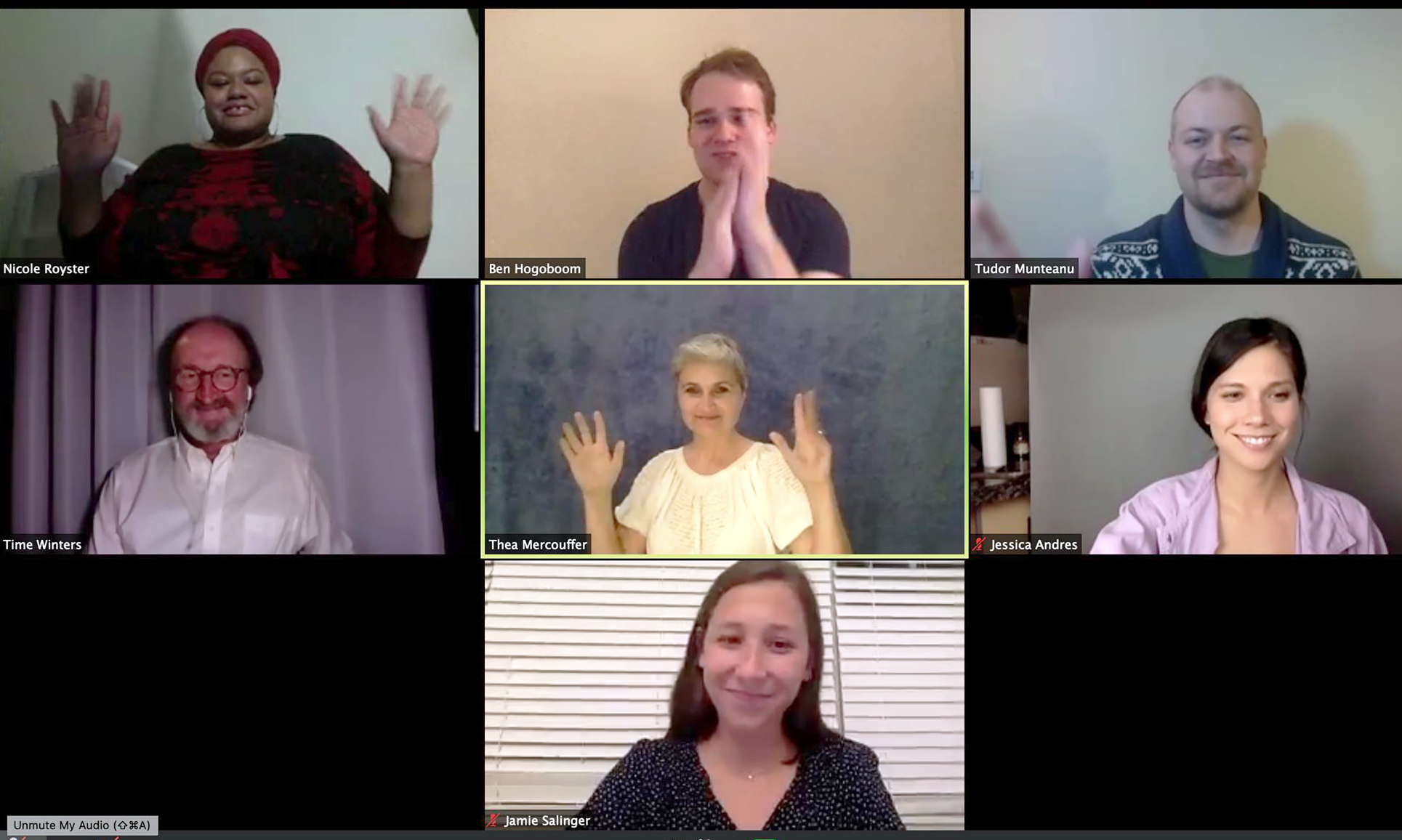Community, Leadership, Experimentation, Diversity, & Education
Pittsburgh Arts, Regional Theatre, New Work, Producing, Copyright, Labor Unions,
New Products, Coping Skills, J-O-Bs...
Theatre industry news, University & School of Drama Announcements, plus occasional course support for
Carnegie Mellon School of Drama Faculty, Staff, Students, and Alumni.
CMU School of Drama
Wednesday, October 28, 2020
Unearthing Your Languages
HowlRound Theatre Commons: How can someone write in a language they don’t understand but that lives in their bones? How do playwrights who are heritage language learners (HLLs)—people historically or personally connected to ancestral languages who may not necessarily understand those languages—write their plays or portions of their plays in their heritage languages?
Subscribe to:
Post Comments (Atom)

4 comments:
This article really got me because languages just aren't my thing whatsoever. I'm more of history and social studies learner than I am a foreign language person, and I'm not that good at math. I took three years of Spanish in high school, grew up around a lot of Spanish speaking people, and I can barely utter a couple words in Spanish if you asked me to. It just doesn't come naturally. I've even tried learning languages on duolingo, didn't work. I do think that app is more for people that are trying to learn the language for travel, not to become fluent or really be able to translate. I do however greatly respect people that devote themselves to learning and practicing another language that is not native to their own. I think in the theater, its even more interesting because on top of all the other historic research you do when translating a play, you also have the added challenge to trying to translate antiquated phrases.
First of all, It was interesting to see how she approached the process of learning language in many different perspectives and ways. Even though I speak more than one language, I have never had such thing like “heritage” language because I always studied language only with the books and recordings without really experiencing the cultures or living within any special circumstances. I did some similarities between me and her to some extent, as I have tried translating the lyrics of my favorite songs into Latin when I was learning it in my high school (although, of course, there are not really “native” speakers of Latin anymore). I think willingness to challenge oneself like Andrei for broader perspective is an important aspect for the playwrights to spur creativity. I definitely agree with the point that just learning different languages allow you to think in multiple ways, since there are absolutely some meanings that can only be interpreted in particular language.
This article, like Shahzad said, really got me thinking about my relationship with languages in my life. I went to a primary school where I learned Spanish for half the day and English for the other half, which I still retained most of my whole life. When I switched schools, I took Spanish in high school and didn’t retain any of it. I tried DuoLingo which did help some, but I really wish I had room in my school schedule to take Spanish. The process in which they explain teaching language in the article was very interesting because writing in another language you are not native to can go horribly wrong without taking proper steps to ensure the right use of language is there. I really wish I would’ve stuck with Spanish because it’s so easy to learn its neighboring languages and in the long run will benefit me for travel, jobs, connections with new people, etc.
This article is so interesting to me. Language already interests me so much. I am common with three, English, Thai, and Japanese. And if I wasn’t a drama major, I would more than likely be studying languages. Something I notice specifically with me and the Japanese language is the nuances. I started learning Japanese when I was in Kindergarten. Maybe it is because I learned so young, but I notice very specific nuances in the language, tones, and grammar in the Japanese language. And I so often find myself incredibly frustrated when I see captions or translations done by somebody other than myself because I find the specific word choice to be a little bit off. I am definitely no expert, so maybe when I translate work that a Japanese person might find that I am less than authentic to the original text. But this article just led me to think about that and how no language can be exactly and perfectly translated across one another because language is SO specific.
Post a Comment